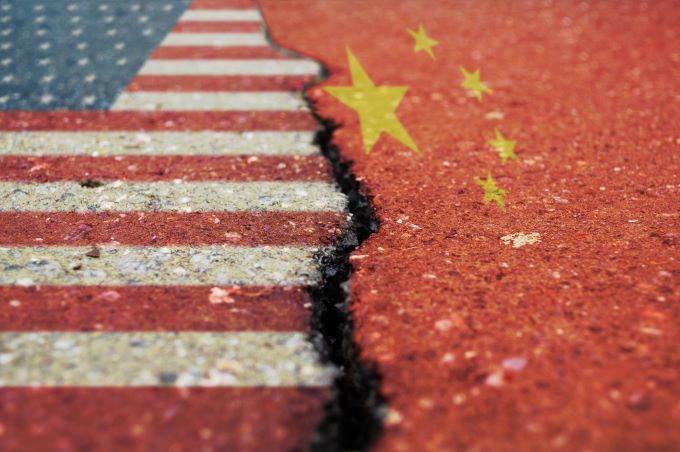 In his continuing efforts to lessen the economic damage caused by the novel coronavirus, U.S. President Donald Trump is expected to suspend some tariffs on Chinese goods for 90 days. Though the full details of this decision have not yet emerged, sources indicate that not all imported items will be eligible for this tariff exemption. Trucks and clothing are among the items expected to be exempted. Medical supplies have already received a tariff suspension. According to the Financial Times, more than 100 CEOs have appealed to President Trump to curb tariffs or delay the collection of tariffs to help their businesses weather the financial storm. The tariff suspension is expected to be signed by executive order in the coming days, though detractors argue that now is the time to take a harder protectionist stance against Chinese goods and to move production of products to U.S. shores to help rebuild the country’s struggling economy.
In his continuing efforts to lessen the economic damage caused by the novel coronavirus, U.S. President Donald Trump is expected to suspend some tariffs on Chinese goods for 90 days. Though the full details of this decision have not yet emerged, sources indicate that not all imported items will be eligible for this tariff exemption. Trucks and clothing are among the items expected to be exempted. Medical supplies have already received a tariff suspension. According to the Financial Times, more than 100 CEOs have appealed to President Trump to curb tariffs or delay the collection of tariffs to help their businesses weather the financial storm. The tariff suspension is expected to be signed by executive order in the coming days, though detractors argue that now is the time to take a harder protectionist stance against Chinese goods and to move production of products to U.S. shores to help rebuild the country’s struggling economy.
U.S.-Sino relations also remain tense thanks to rumors of a proposal by U.S. lawmakers to require chipmakers to obtain a license if they use American equipment to make components sold to Chinese communications titan Huawei. U.S. lawmakers continue to argue that Huawei poses a security threat. Chinese officials have already threatened retaliatory measures if such an edict is passed. The new rule is expected to take aim at Taiwanese chipmakers and to prevent them from selling components to Huawei, which would essentially cut Huawei off at its source.
Market Movements
The first quarter of 2020 closed yesterday with quite a bang, painting a distressing picture about the state of global markets. The Dow Jones Industrial Average saw its worst first quarter ever, falling 23.2 percent for the quarter. The S&P 500 closed its worst quarter since Q4 2008, ending down 20 percent. The Nasdaq ended the quarter down 14.2 percent, its worst performance since Q4 2018.
However, it was oil prices that really suffered the most in Q1 due to the impacts of the novel coronavirus as well as the price war set into motion by Russia and Saudi Arabia before the economic decline of the virus became quite so obvious. U.S. oil prices crashed some 18 percent in March, the worst decline in 18 years. Oil futures remained lower during the first trading day of Q2 2020, with Brent crude futures down 2.16 percent to $22.74 per barrel, and U.S. WTI futures down 0.1 percent to $20.46 per barrel. Brent prices suffered a 55 percent decline in March, its worst month since 1988.
On the currency markets, the dollar firmed modestly on Wednesday as traders showed their preference for safety during these turbulent market conditions. The greenback’s gains were capped by the Federal Reserve’s efforts to inject additional liquidity into the market. Both the pound and the euro eased against the greenback, falling 0.314 and 0.064 percent respectively. The dollar did weaken slightly against the Japanese yen, falling 0.047 percent to 107.48.
On Tuesday the Fed expanded the ability of foreign central banks to access dollars, in an effort to add liquidity to the market. “The Fed clearly wants to do everything it can necessary to ensure dollar liquidity, which puts downward pressure on the dollar,” said Kyle Rodda, an analyst at IG Markets. Still, liquidity comes at a premium because of the risk in the markets.
